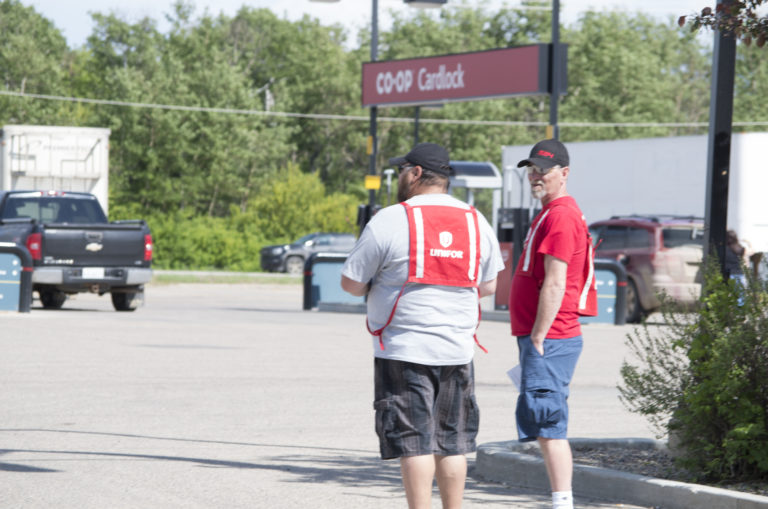
Unifor Local 594 members voted on Monday to ratify a new tentative bargaining agreement offered by Federated Co-operatives Limited (FCL).
The vote ends a six-month lockout at the Co-op Refinery in Regina, which employs roughly 730 Unifor members.
Local 594 president Kevin Bittman said union members were happy to get back to work after a long work stoppage.
“This was the first, and hopefully the last, work stoppage in our local’s 78 years of faithfully providing the Co-op Refinery with our dedicated labour,” Bittman said in a media release. “It will be hard going back into the workplace for some of us, but we will do it with our heads held high because we stood in solidarity for one another.”
Bittman called the lockout the toughest period in the union’s history, but said they would be stronger because of it.
Unifor said the new agreement matches national wage improvement patterns, while maintaining its defined benefit pension plan. FCL will also match the employee savings plan for existing workers.
While Bittman focused on the positives, Unifor National President Jerry Dias said it never should have taken this long to reach a deal.
“In the end, we were successful in protecting their retirement security and in achieving the national wage pattern,” Dais said in a press release. “But, this result could have been reached far earlier if the mediator recommendations had been enforced by Premier Scott Moe.”
Unifor members started rallying in front of the provincial legislature on June 15, demanding the government pass legislation that would end the lockout.
At the time, Moe said he sympathized with workers, but believed collective bargaining would lead to the best deal for both sides.
FCL vice-president of refinery operations Gil Le Dressay said he was sincerely pleased that Local 594 members accepted the deal. He called the lockout was “a difficult period in our history,” but believed both parties would be stronger for it.
“The Union has been our partner in fueling Western Canada for more than 75 years,” he said in a media release. “They will be our partner for generations into the future.”
Le Dressay said the industry is changing, and the new agreement would allow the refinery to remain competitive and stable in the long-term.
“We have only begun to see how new regulatory requirements and external pressures are going to shape our industry’s future,” he said. “We all need to recognize that these changes are imminent. We are better off facing that future as partners as we work together to achieve our collective goals and interests.”
